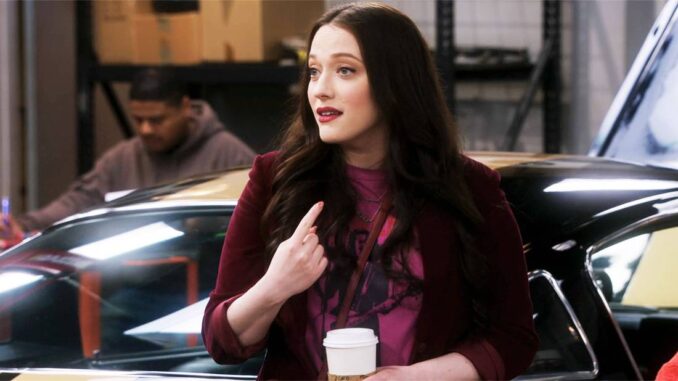
The hush that falls over the internet when a beloved show announces a new character is a unique kind of tension. For fans of "Shifting Gears," a show lauded for its heartfelt, grounded portrayal of young adulthood, the Season Two announcement sent ripples of both excitement and apprehension. The news: a popular late-night host would be joining the cast, not as a guest star, but as a recurring character, a new friend for the earnest, perpetually bewildered protagonist, Riley. It sounded, on paper, like the kind of meta-casting gimmick that could either elevate a series to new heights or send it careening into the realm of self-parody. Yet, as the season unfolded, it became clear this wasn't just stunt casting; it was a masterstroke, a narrative shift that expanded the show's universe and deepened its emotional core.
"Shifting Gears," at its heart, had always been about the quiet, often clumsy, navigation of life’s transitions. Riley, our anchor, had spent Season One wrestling with the mundane yet monumental challenges of a new city, a first real job, and the bewildering landscape of adult friendships. Her world was small, intimately observed, rich in the textures of shared apartments and late-night diner confessions. The announcement that Julian Thorne, the sharp-witted, effortlessly charming king of late-night television, would enter this world as Riley’s new confidant felt like dropping a supernova into a dewdrop. How could the man who regularly sparred with presidents and pop stars possibly connect with Riley, whose biggest struggle last week involved deciphering her apartment’s recycling rules?
The brilliance lay in the initial clash, and the unexpected harmony that emerged. Julian Thorne, as the character "Arthur Finch," arrived not with a spotlight, but with a quiet, almost weary grace. He wasn't playing himself, but a fictionalized version of a man like him – a public figure who, behind the polished facade, carried the weight of constant observation and a profound, sometimes lonely, understanding of the human circus. Their meeting wasn't glamorous; it was the kind of serendipitous collision that felt perfectly "Shifting Gears." Perhaps Riley, working a catering gig, accidentally spilled an entire tray of mini quiches onto his designer suit. Or maybe they both found themselves stuck in a surprisingly long line at a niche bookstore's philosophy section. The specifics were less important than the immediate, awkward friction. Riley, star-struck and mortified; Arthur, amused by her genuine fluster, a refreshing change from the practiced deference he usually encountered.
What Julian Thorne, as Arthur, brought to Riley’s life was not a gateway to celebrity parties or red-carpet events, but a new lens through which to view her own small world. Riley, ever the pragmatist, saw problems in black and white; Arthur, a man who dealt in the grey areas of public opinion and the nuanced absurdities of human behavior, offered a broader perspective. He didn't offer solutions, but frameworks. When Riley grappled with a difficult boss, Arthur didn't suggest she quit, but rather, with a wry smile, dissected the power dynamics and the unspoken expectations, turning a personal slight into a sociological observation. He saw the humor in her predicaments, not to diminish them, but to gently suggest that life’s dramas, even the deeply personal ones, often played out on a stage far larger than we imagined.
His presence also allowed "Shifting Gears" to subtly explore themes of authenticity and perception. Riley, struggling to present a curated version of herself for a job interview, found herself questioning Arthur about the disconnect between his public persona and the quiet, introspective man she knew. He didn't preach, but shared anecdotes, revealing the exhaustion of always being "on," the subtle art of revealing just enough, and the profound relief of finding someone with whom one could simply be. Through Arthur, Riley, and by extension the audience, gained insight into a world often glimpsed but rarely understood, making the show's central theme of navigating complex realities even richer.
The friendship itself was a study in contrasts that blossomed into complementarity. Riley grounded Arthur, reminding him of the simple, unvarnished joys and frustrations that fueled his observational comedy. He, in turn, offered Riley a kind of intellectual mentorship, a window into a more cynical yet ultimately compassionate understanding of the world. He was a lighthouse beam cutting through the fog of her youthful earnestness, not blinding her, but guiding her gaze to horizons she hadn't yet considered.
Ultimately, "Shifting Gears" Season Two's decision to add a popular late-night host as Riley's new friend wasn't a narrative indulgence; it was an act of daring expansion. It challenged the comfortable intimacy of the show's established world, introducing an element of the extraordinary that, paradoxically, made the ordinary feel even more profound. It transformed a potential gimmick into a genuine narrative force, proving that sometimes, the most unexpected pairings yield the most resonant, illustrative stories of human connection. The show shifted gears, indeed, and in doing so, found a deeper, more expansive understanding of the roads Riley, and all of us, are destined to travel.